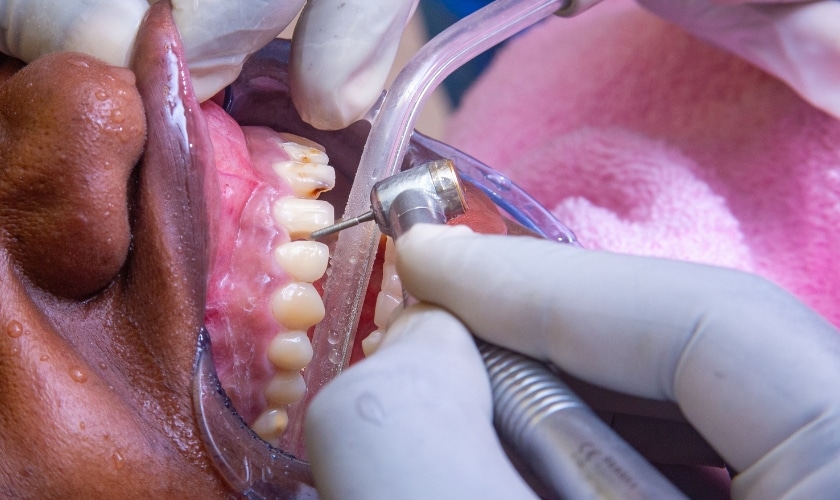
Periodontal disease, also commonly known as periodontitis, is a gum disease that leads to inflammation of the gums. By leaving it untreated or ignored, tooth loss can happen to the individual suffering from it. Following proper oral hygiene can significantly reduce the possibility of periodontal disease. Some of the treatment methods include deep dental cleaning or even surgery. Let’s discuss whether tooth loss could signify advanced periodontal disease. Read the blog to know more.
What is periodontal disease?
A periodontal disease is a severe form of gum disease. It is a bacterial infection that begins with inflammation of soft tissues around the teeth. The problem needs immediate medical attention by dental care near me. If not, the disease will progress and erode the bone that provides support to the teeth, thus causing mobility and, eventually, tooth loss. Lack of proper oral hygiene is the main cause of periodontal disease. However, some are also genetically prone to periodontal disease if their parents or grandparents have a history of gum disease.
What causes periodontitis?
The primary cause of periodontal disease is not maintaining good oral hygiene. Bacteria accumulates on the plaque and tartar. If brushing and flossing are not done properly, these bacteria travel down toward the gum line, an area where the brush or floss can’t reach. It then erodes the tissues that play a crucial role in supporting the teeth, thereby leading to infection, tooth loss, and bone loss. Other causes of periodontal disease include smoking which weakens the ability of the body to fight the infection, diabetes, genetics, family history of arthritis, etc.
What are the warning signs of periodontal disease?
Various symptoms or warning signs indicate that you may have periodontal disease. Some of them, to name a few, include:
- Bad breath that does not go away.
- Change in taste.
- Swollen gums.
- Bleeding gums or gums that are tender.
- Pain at the time of chewing food.
- Increased sensitivity in the teeth.
What are the risk factors for periodontal disease?
- Smoking
- Diabetes
- Increase in stress
- Hereditary factors
- Presence of crooked teeth
- Lack of proper oral hygiene
- Defective fillings
- Medications that lead to dry mouth
- Bridges that do not fit in properly
Prevention and Treatment
Gingivitis can be effectively controlled and treated by maintaining good oral hygiene and regular dental cleanings. However, a more extensive dental treatment may become necessary if periodontal disease is severe. The treatments may include deep teeth cleaning of the surfaces of the tooth root located below the gums, medications, etc. For some scenarios, corrective surgery may become necessary.
How can tooth loss be a sign of advanced periodontal disease?
There could be two reasons why tooth loss may happen. One reason is injury, and another reason is infection. Tooth loss due to injury can happen due to an unexpected fall, accident, or tooth getting knocked out while playing contact sports. However, if tooth loss occurs due to an infection, then the dentist will check for the presence of periodontal disease. The dentist near you will check whether the patient shows signs and symptoms indicating advanced periodontal disease.
Thus we have discussed the various aspects of periodontal disease, including what it is, the symptoms of periodontal disease, risk factors, warning signs, prevention, and treatment. If you experience a toothache that does not go away, it could signify periodontal disease. Consult your periodontics, who will check your dental health for any infections, such as periodontal disease. If you have any dental concerns, feel free to reach out to us.





